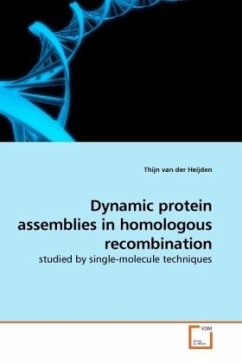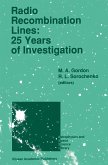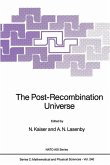What happens when your DNA breaks? This thesis describes experimental work on the single-molecule level focusing on the interaction between DNA and DNA-repair proteins, in particular bacterial RecA and human Rad51, involved in homologous recombination. Homologous recombination and its central event of DNA strand exchange are essential processes in all living organisms for generating genetic diversity and for repairing potentially disastrous DNA breaks. Several cancer-prone genetic diseases are associated with homologous recombination dysfunction or deficiency. With the use of single-molecule techniques like magnetic tweezers and atomic force microscopy, the complex mechanism of the DNA repair pathway of homologous recombination is slowly unraveled.
Bitte wählen Sie Ihr Anliegen aus.
Rechnungen
Retourenschein anfordern
Bestellstatus
Storno








